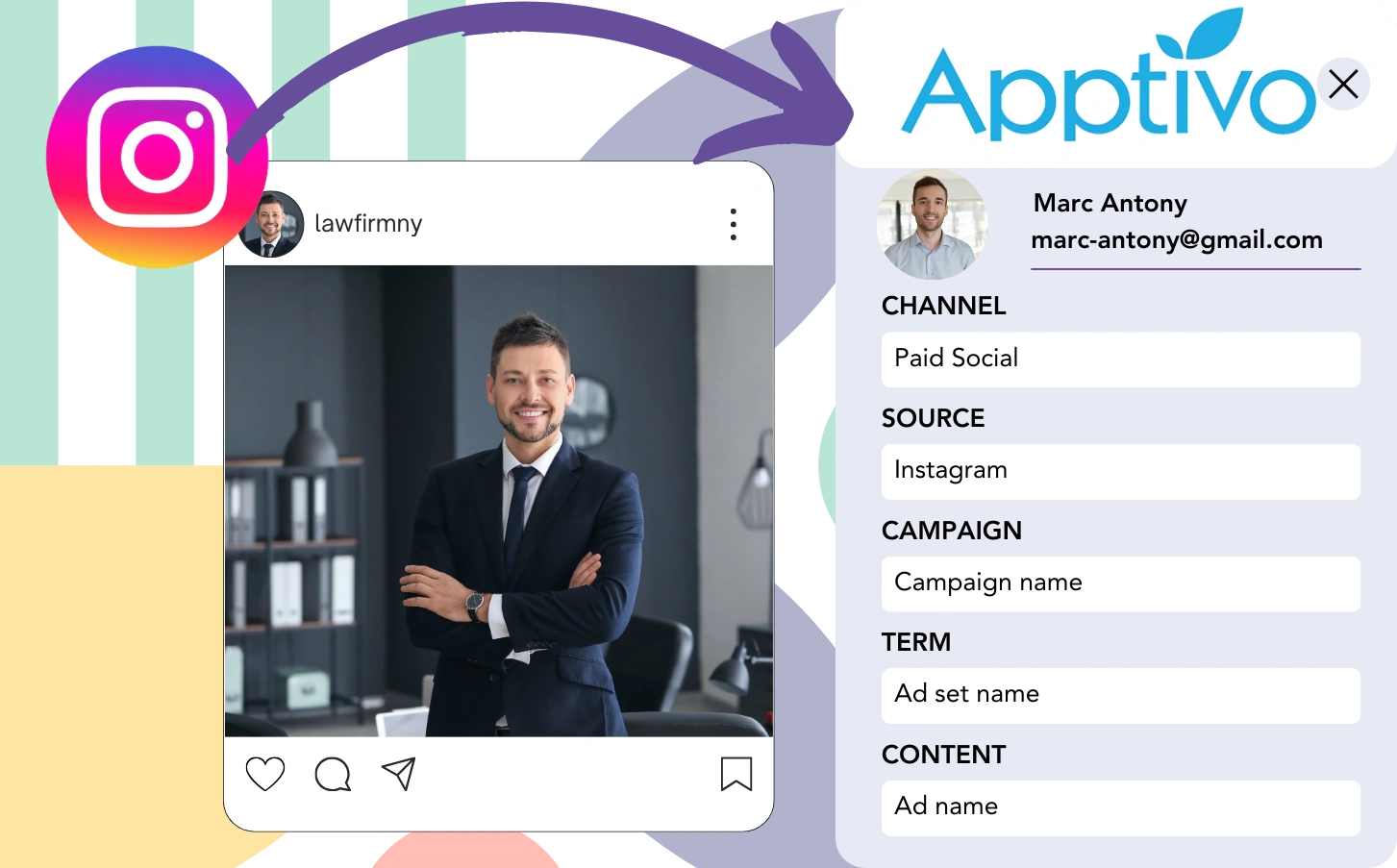Leads sourced from Instagram are directed to Apptivo CRM, however, each lead’s original ad remains isolated. Additionally, once a lead becomes a customer, there’s no way to determine the Instagram ad they came from.
Without tracking, it’s tough to measure the impact of your Instagram ads, so you’re left unsure of which ads bring in leads and customers. As a result, you might continue ad spending without any clarity on their value.
Thankfully, a simple approach is available to link every lead to the exact Instagram campaign, ad set, and ad from which it originated.
We’ll take on each step one at a time!
How to Track Instagram Ads in Apptivo CRM
Step 1: Add Leadsources in the head tag of your website

Step 2: Add the UTM parameters to your Instagram ads

To capture Instagram ad metrics, add UTM parameters in your ad URL, covering campaign, ad set, and ad data. Use this template:
UTM_medium=paidsocialUTM_source=instagramUTM_campaign=campaign-nameUTM_term=ad-set-nameUTM_content=ad-name
The ultimate format of the URL should be as follows:
https://www.yourdomain.com/?UTM_medium=paidsocial&UTM_source=instagram&UTM_campaign=campaign-name&UTM_term=ad-set-name&UTM_content=ad-nameBe aware that Leadsources gathers all lead source information, regardless of UTM parameter implementation, ensuring complete tracking for every lead.
Step 3: Add the hidden fields in your form
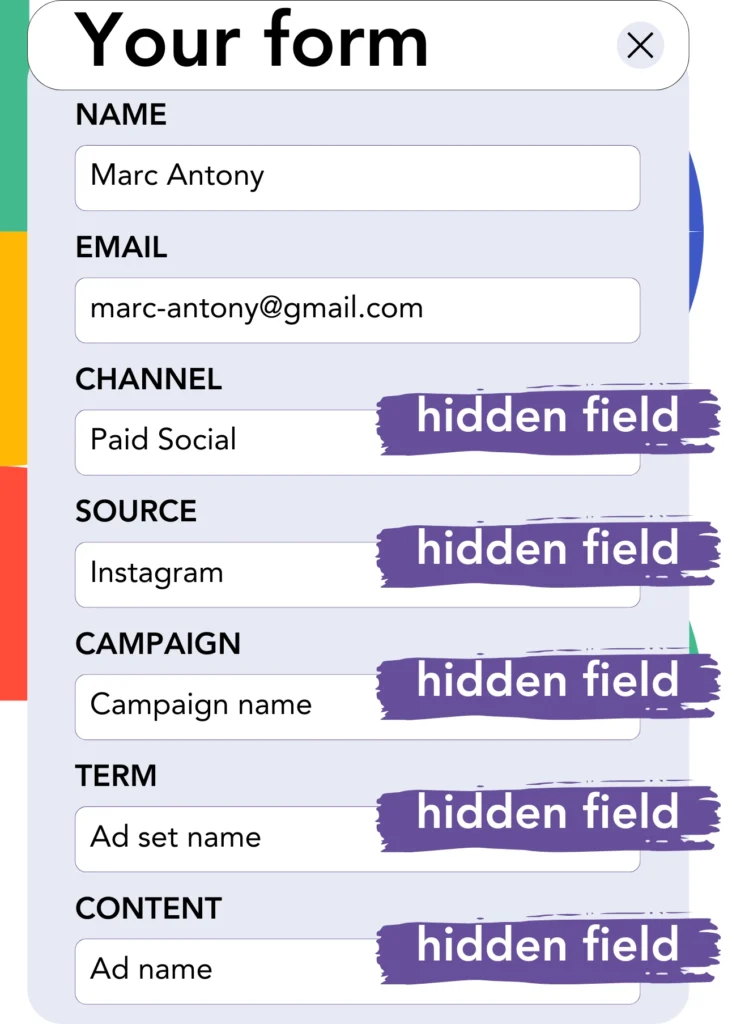
In forms, hidden fields are elements that users do not see, yet they can retain data that accompanies the submission of the form.
The hidden fields of your form hold lead source data as stored by Leadsources. Therefore, when a lead submits the form, these fields are automatically populated with Instagram ad data.
Leadsources integrates smoothly with all popular form builders. For complete directions on incorporating hidden fields in your form, refer to this guide.
Step 4: Capture the Instagram ads data in Apptivo CRM
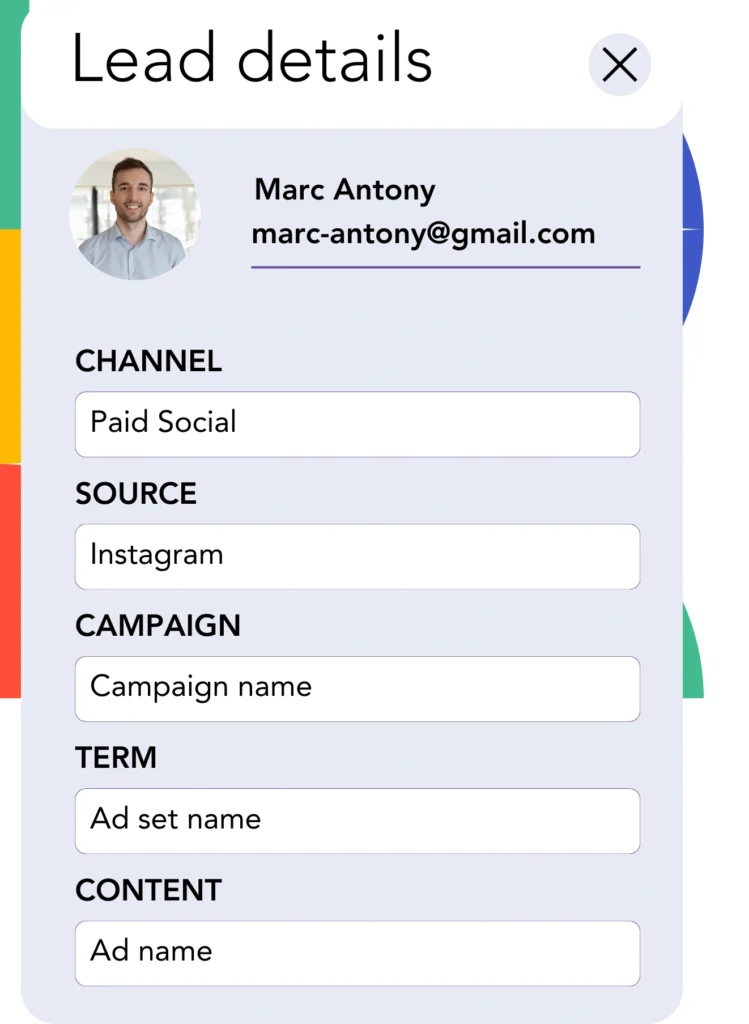
When users engage with your advertisements and land on your website, Leadsources collects the Instagram campaign, ad set, ad data, and additional information.
Leadsources effectively fills the hidden fields of your form with Instagram ads information.
Consequently, once the form has been submitted, the Instagram ad data and lead details can be viewed in Apptivo CRM (This involves connecting your form to Apptivo CRM).
How does Leadsources work?
Whenever a visitor clicks on your ads and arrives at your website, Leadsources retrieves Instagram ad data and fills it into the hidden fields of your form. Once the form is submitted, this data is forwarded to Apptivo CRM, along with the lead details you’ve captured (such as name and email).
Leadsources compiles all the lead source data for every lead acquired:
| Lead source data | Fetched automatically |
| Channel | ✅ |
| Source | ✅ |
| Campaign | ✅ OR use UTM_campaign |
| Content | UTM_content parameter is required |
| Term | UTM_term parameter is required |
| Landing page | ✅ |
| Landing page subfolder | ✅ |
As noted in the table above, in situations where UTM parameters can’t be applied—such as organic sources like Google search or Instagram bio links—Leadsources continues to collect some lead source data:
- Channel
- Source
- Campaign
- Landing page
- Landing page subfolder
In contrast to other applications, Leadsources offers tracking of lead sources across all marketing channels, including both organic and paid.
Performance reports: Lead, sales, and revenue by source
By tracking Instagram ads data in Apptivo CRM, you can create various performance reports, such as:
- Leads, sales, and revenue by channel
- Leads, sales, and revenue by source
- Leads, sales, and revenue by campaign (aka. Instagram campaign)
- Leads, sales, and revenue by term (aka. Instagram ad set)
- Leads, sales, and revenue by content (aka. Instagram ad)
This helps you to effectively manage your Instagram budget according to the campaigns, ad sets, and ads that are driving the highest leads, sales, and revenue.
Let’s explore some of the reports you can generate:
1. Lead source reports
Create performance reports that present the leads gathered through:
- Channel
- Source
- Campaign (aka. Instagram campaign)
- Term (aka. Instagram ad set)
- Content (aka. Instagram ad)
- Landing page
- Landing page subfolder
Example #1: Leads by channel
This report helps you evaluate which channel yields the highest lead generation results.
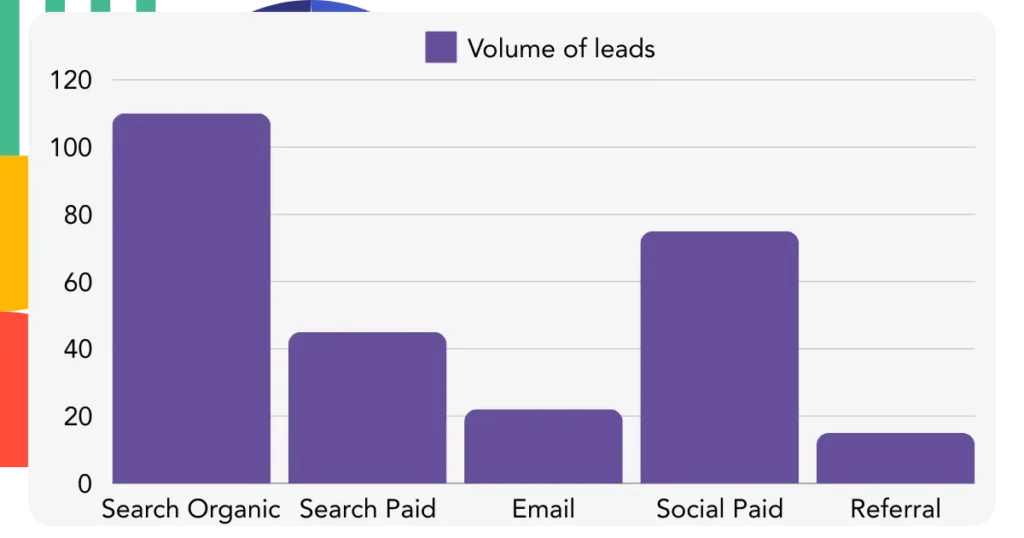
Example #2: Leads by Instagram campaign
Now you have the chance to focus on a specific lead source (e.g., Instagram) and measure the lead generation from each Instagram campaign.
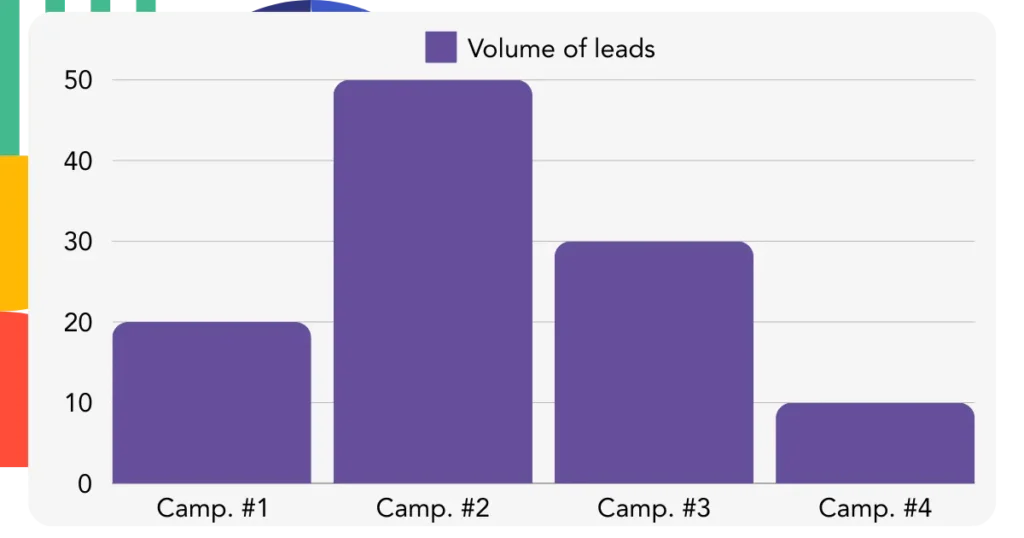
Example #3: Leads by Instagram ad
After identifying the Instagram campaign that produces the highest volume of leads, you can take a closer look at which ad group or ad drives those leads.
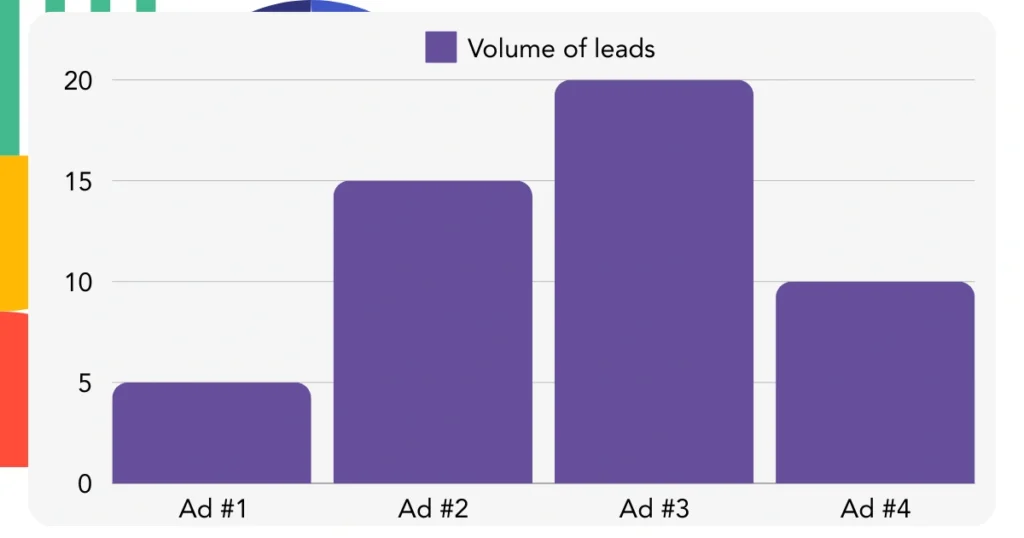
2. Sales and revenue source reports
Now that we have established which Instagram campaign, ad set, and ad yield our leads, we must analyze if these leads are resulting in sales and revenue.
To do this, associate your leads with a CRM such as Apptivo CRM. This connection helps you track sales and revenue created by different channels, sources, Instagram campaigns, ad sets, ads, landing pages, and specific subfolders.
With these insights, you can revise your Instagram ad strategy to focus on the channels, sources, campaigns, ad sets, and ads that have generated the most sales and revenue.
You have the capability to generate diverse sales and revenue reports, such as:
- Sales and revenue by channel
- Sales and revenue by source
- Sales and revenue by campaign
- Sales and revenue by term (e.g., Instagram ad set)
- Sales and revenue by content (e.g., Instagram ad)
- Sales and revenue by landing page
- Sales and revenue by landing page subfolder
Example Scenario:
| Channel | Search Paid | Social Paid |
|---|---|---|
| Leads | 50 | 75 |
| Sales | 5 | 6 |
| Average Order Value | $150 | $100 |
| Revenue | $750 | $600 |
After the ads were launched on Google and Instagram, the initial “Leads by Channel” report confirmed that Social Paid ads (Instagram) produced more leads than Search Paid ads.
After investigating the sales and revenue figures in Apptivo CRM, you found that the Search Paid channel produced greater revenue with fewer leads compared to the Social Paid channel. Based on this insight, you decided to adjust your budget to prioritize the Search Paid channel.
LeadSources tracks the source of each lead in Apptivo CRM, whether they come from ads, organic search, social, email, etc. and syncs that data with each submission. See the full breakdown on the lead source in Apptivo CRM page.

